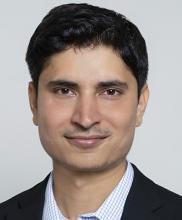Professional summary
Srinidhi leverages his hydroclimatology expertise to address sustainability challenges and mitigate climate risks through data-driven insights. A dedicated climate science enthusiast, he excels in analysing global climate risk, leading climate change adaptation initiatives and applying advanced statistical techniques to enhance climate change modelling.
In his role at UKCEH, Srinidhi contributes to hydrological monitoring and forecasting tools through global environmental data analysis. Engaging internationally, he focuses on climate change impacts and adaptation in Southeast Asia and Africa. Responsibilities include enhancing global hydroclimate predictability, researching net-zero policy effects on hydrological extremes, conducting hydro-meteorological hazard predictability research in Sub-Saharan Africa, and modifying drought vulnerability guidelines based on UNCCD Strategic Objective 3. Through these projects, he drives proactive climate adaptation strategies and enhances resilience in vulnerable populations and ecosystems.
Previously, as a Postdoctoral Researcher at ETH Zurich, Switzerland, Srinidhi focused on multivariate climate extremes, including simultaneous heatwaves-drought events. His work involved uncertainty analysis of future climate extremes projections, investigating health risks due to heatwaves, and analysing global compound hot-dry event constraints.
During his PhD at the Indian Institute of Technology Indore, he explored climate extremes' distribution, occurrence, and dependence, assessing impacts on risk and resilience. Contributions encompassed: nonlinearity assessment in climatic drivers; modelling extreme events; formulating multivariate probabilistic approaches for risk estimation; integrated frameworks simulated future ecosystem risks; and, mapping resilience, vulnerability, and reliability for adaptation and mitigation strategies. Srinidhi remains committed to shaping science-backed sustainability solutions for the evolving climate, significantly impacting industries, government, policymakers, media, and researchers.
